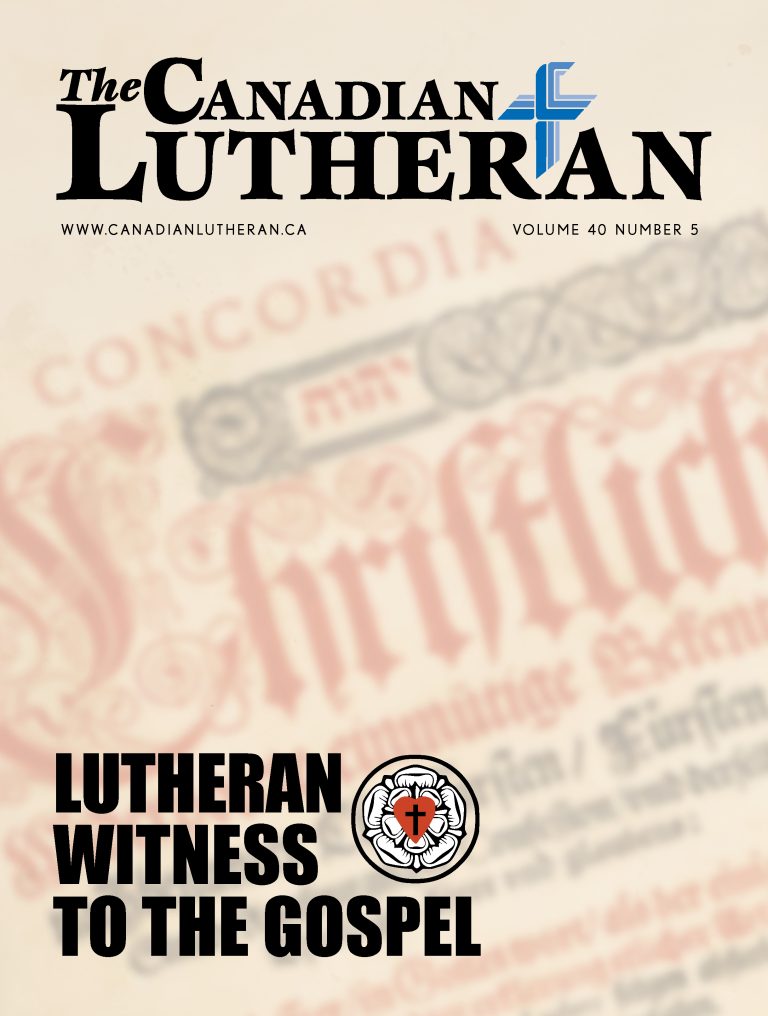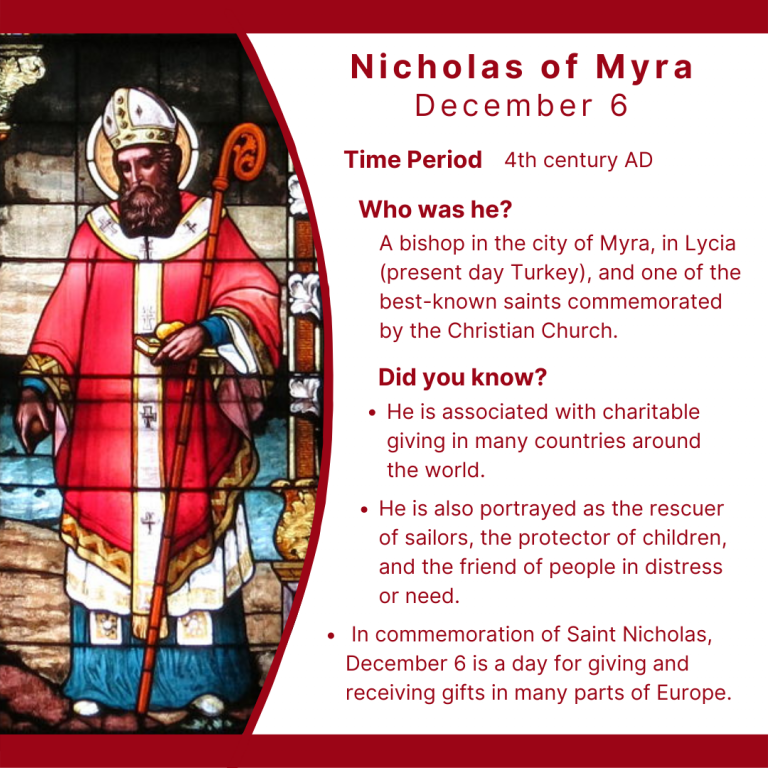Doctor Luke: Evangelist & Physician

St. Luke: Simone Martini, c.1330.
by James Kellerman
We learn from Colossians 4:14 that Luke was a physician. But did that fact have any bearing on the way that he wrote his Gospel?
We could answer that question by simply searching for words in Luke or Acts that might have a medical meaning. That is a trickier procedure than it sounds because both Greek and English have many words that can be used in a medical sense or with a more ordinary meaning. Think of “acute” or “benign” or “fracture,” for example, in English.
Nonetheless, there are a number of words in Luke and Acts that seem to come from the world of medicine. For example, when Luke describes in Acts 13:11 how Elymas became blind, the word he uses (translated as “mist” by the ESV) is a technical term also used by the ancient physician Galen. Also, whenever Luke refers to someone who was unable to walk, he uses the more medically correct Greek word: “a paralyzed man” (my translation; see Luke 5:18, 24; Acts 8:7; 9:33). The other evangelists use the more colloquial form, which is a related noun: “a paralytic.” And, although we aren’t entirely certain, the word for “dropsy” in Luke 14:2 seems to be a medical term. At the very least, no other passage in the Scriptures uses it to describe a person suffering from that affliction.
In addition to using the occasional medical term, Luke also seems to describe patients the way a doctor would. He notes how long patients had been suffering (Luke 13:11; Acts 9:33) and their age (Luke 8:42; Acts 4:22). The phrase “Physician, heal yourself” (Luke 4:23) is in our Lord’s first sermon. And nearly the last words of Acts are “I would heal them” (28:27). Thus, Luke’s two-volume work (Luke and Acts) begins and ends with references to healing.
But what was medicine like in the ancient Greco-Roman world? By Luke’s time, Greece had made significant advances in medicine over what had prevailed in the Ancient Near East during the Old Testament era. For one thing, medicine was no longer inextricably linked with the worship of pagan deities. Physicians were taught instead to be keen observers of the body and disease, and were warned not to let philosophical speculation or pagan rites distract them from that task.
We learn from Colossians 4:14 that Luke was a physician. But did that fact have any bearing on the way that he wrote his Gospel?
By Luke’s day, the medical profession had a good understanding of basic human anatomy. Five centuries before Christ, physicians had already discovered such things as the optic nerve and the Eustachian tubes. At the dawn of the third century B.C., they had added such body parts as the cerebrum, cerebellum, duodenum, and prostate to their anatomy books. They had also discovered that arteries and veins were distinct but connected in one system.
They made some errors, to be sure. For example, most physicians thought that illness was caused by an imbalance in the four humours (blood, phlegm, black bile, and yellow bile). They also thought that the heart pumped air through the arteries, and that its chief function was to provide “innate heat”—a key measure of health. But rather than focus on their errors, we should commend them for striving to practice medicine based on what the empirical data were showing them. Medical knowledge is always developing, and today’s physicians change their practices as better science becomes available. That was what they did in antiquity, too.
The physicians of ancient Greece were regarded as skilled craftsmen. They did not receive a licence from a professional association but were instructed at one of several schools throughout the Greek-speaking world. They were especially trained to possess the skill of foresight (a term Luke uses in Acts 24:2). Foresight was more than the mere ability to make a reasonable prognosis of a disease. It also included the ability to size up a patient and deduce symptoms without being told. By this skill, they looked for a crisis or turning point, when prompt treatment needed to be applied. And it taught them to be wise enough to know when their craft could do no more, and they had to let the patient rest so that the body could heal itself. In short, physicians in Luke’s day were probably as competent as any other generation of physicians until the middle of the nineteenth century.
Like modern doctors, physicians back then were not just medical experts but tended to be well read on a variety of subjects. Their curiosity and attentiveness to detail easily transferred to other studies. It is probably no accident that one of the greatest philosophers of antiquity, Aristotle, was the son of a physician.
We see that attentiveness and intellectual curiosity in Luke’s writings. His prologue (Luke 1:1-4) has a dense structure and a content similar to prologues of Greek historians. He states that he wants to investigate for himself what others have narrated, and he wants to put everything in an orderly account.
Luke also adopts a no-nonsense approach to writing, which may reflect his medical training.
His Greek at times has a literary bent to it. For example, he often follows some subtle grammatical rules about the proper mood for a verb that his contemporaries were largely ignoring. His usage would be akin to someone today saying, “If I were the ruler of the world” instead of “If I was the ruler of the world.” Everybody understands the latter, and it is probably the more common way to say it in modern spoken English. But those who pride themselves on following the old-fashioned rules of grammar would insist on the former expression. Luke wrote in that kind of style—a bit on the prim and proper side.
At the same time, his writing is not stuffy. His style was shaped by the language of the Septuagint, the main Greek translation of the (Hebrew) Old Testament used in Greek synagogues and in the early church. The Septuagint is a rather varied translation. Some portions of it read as if they were one of the Greek classics. Other parts read as if someone was thinking in Hebrew while writing in Greek. But that was how the Jews of Luke’s day talked. Some could speak in as sophisticated a form of Greek as any native speaker, while others peppered their Greek with Hebrew idioms. Thus, Luke was versatile enough to write in a sophisticated style that would appeal to educated Jews like Philo and yet could speak to ordinary people who spoke a less polished Greek, a language that was not their native tongue. He was a physician who could be quite precise but knew not to address his patients in “medical speak.”
Luke also adopts a no-nonsense approach to writing, which may reflect his medical training. Mark is full of details, and his account of each incident tends to be much longer than Matthew’s or Luke’s. But Luke is a master at portraying a vivid scene with relatively few words. He has been compared to a painter who can create a rich picture with a few powerful brush strokes. Like a good physician, he never succumbs to emotionalism. He engages in no bitter polemics or flights of rhetorical fancy.
 So, did Luke’s occupation as physician influence how he wrote his gospel and Acts? It most certainly did. It is not that he was consciously thinking of medicine as he wrote, but his entire training and life experience would have prepared him for the task. And, thus, his writings are indeed a fine balm for our souls.
So, did Luke’s occupation as physician influence how he wrote his gospel and Acts? It most certainly did. It is not that he was consciously thinking of medicine as he wrote, but his entire training and life experience would have prepared him for the task. And, thus, his writings are indeed a fine balm for our souls.
———————
Rev. Dr. James Kellerman is Associate Professor of Theology at Concordia Lutheran Theological Seminary (St. Catharines, Ontario).



